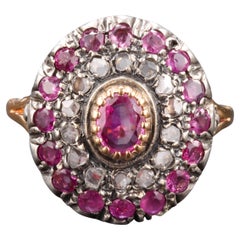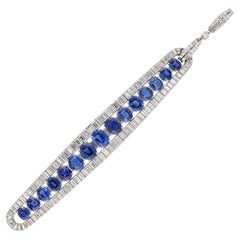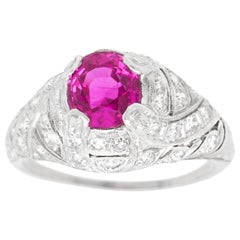75 Burma No Heat Sapphire
Antique Late 19th Century American Late Victorian Dome Rings
Pink Sapphire, Diamond, 18k Gold, Silver
Vintage 1930s Link Bracelets
Diamond, Sapphire, Platinum
Recent Sales
Vintage 1920s American Art Deco Cocktail Rings
White Diamond, Sapphire, Pink Sapphire, Platinum
People Also Browsed
1980s Italian Cocktail Dresses
Antique Early 1800s European Georgian Three-Stone Rings
Diamond, Gold
Antique 19th Century British Victorian Cluster Rings
Pearl, Diamond, Enamel, Yellow Gold, 18k Gold
1990s French Cardigans
1990s Italian Jackets
2010s French Bikinis
Antique Early 1900s Unknown Cluster Rings
Diamond, 14k Gold
21st Century and Contemporary Italian Shoulder Bags
1990s Italian Camisoles and Shell Tops
Early 2000s Evening Dresses and Gowns
2010s Unknown Art Deco Engagement Rings
Diamond, Platinum
Antique Late 19th Century Chinese Art Nouveau Beaded Necklaces
Jade, 14k Gold
2010s Unknown Modern Fashion Rings
Diamond, Jade, Platinum
Early 2000s Italian Jackets
1920s Czech Evening Bags and Minaudières
Antique Early 1900s Solitaire Rings
14k Gold
The Legacy of Diamond in Jewelry Design
Antique diamond rings, diamond tiaras and dazzling vintage diamond earrings are on the wish lists of every lover of fine jewelry. And diamonds and diamond jewelry are primarily associated with storybook engagements and red-carpet grand entrances — indeed, this ultra-cherished gemstone has a dramatic history on its hands.
From “A Diamond Is Forever” to “Diamonds Are a Girl’s Best Friend,” pop culture has ingrained in our minds that diamonds are the most desired, the most lasting and the most valuable gemstone. But what makes the diamond so special? Each stone — whether it’s rubies, sapphires or another stone — is unique and important in its own right. April babies might claim diamonds for themselves, but just about everyone wants this kind of sparkle in their lives!
There are several factors that set diamonds apart from other stones, and these points are important to our gem education.
Diamonds are minerals. They are made up of almost entirely of carbon (carbon comprises 99.95 percent; the remainder consists of various trace elements). Diamonds are the hardest gemstones, ranking number 10 on the Mohs Hardness Scale. Even its name, diamond, is rooted in the Greek adamas, or unconquerable. The only object that can scratch a diamond is another diamond. Diamonds are formed deep within the earth at very high temperatures (1,652–2,372 degrees Fahrenheit at depths between 90 and 120 miles beneath the earth’s surface) and are carried up by volcanic activity. Diamonds are quite rare, according to the Gemological Institute of America, and only 30 percent of all the diamonds mined in the world are gem quality.
In the 1950s, the Gemological Institute of America developed the 4Cs grading system to classify diamonds: clarity, color, cut and carat weight. Not all diamonds are created equal (there are diamonds, and then there are diamonds). The value of the diamond depends on the clarity (flawless diamonds are very rare but a diamond's value decreases if there are many blemishes or inclusions), color (the less color the higher the grade), cut (how the diamond’s facets catch the light, certain cuts of diamonds show off the stone better than others) and carat weight (the bigger, the better).
When you start shopping for a diamond engagement ring, always prioritize the cut, which plays the largest role in the diamond's beauty (taking the time to clean your diamond ring at least every six months or so plays a role in maintaining said beauty). And on 1stDibs, a range of buying guides can be found for those in the market for antique engagement rings, vintage engagement rings or Art Deco engagement rings.
Shop antique and vintage diamond rings, diamond necklaces and other extraordinary diamond jewelry on 1stDibs.


